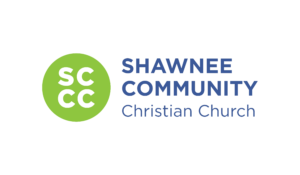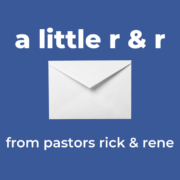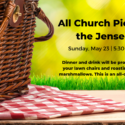a little r & r

In case you hadn’t noticed, and you probably have, my hands shake all the time. I like to make light of this from time-to-time, especially when I start a new interim ministry. I like to tell people “I’m not nervous. I’m just glad to see you.” Which is true. I like to add, “I’m part Shaker and Quaker,” though I admit this may cross a line for two very devout Christian groups. It’s probably more sensitive to say like James Bond, “I like my martinis ‘shaken not stirred’.”
Trouble is: With COVID there’s never been a good time to share this with you so I could put you at ease about a condition I have called “Essential Tremor” or “Benign Familial Tremor.” Saying something on Zoom or by recording the service last Fall seemed too impersonal and during Live Streaming seemed too public.
In any case, my tremor is not Parkinson’s (I’ve often been asked this), though I feel for anyone who suffers this or has a family member who does. But my tremor was passed down to me genetically from a family member I never met, since I was adopted. Further proof of this is that I have passed my tremor onto my children, though our son Peter suffers it worse than our daughter Erica.
I’ve known I’ve had the tremor for a long time. I didn’t know what it was when I first detected it while in college. I never checked it out until many years later a former member of Shawnee Park and a health professional asked me, “Is something wrong with you?” Her pointed comment got me off my duff and made me visit a neurologist who tested me with a very simple hand motion and said, “Oh yeah! You’ve got BFT” (cf. above). End of matter.
Though not really. In the years soon after my doctor’s visit, I pretty much blithely sloughed it off as not my problem but other people’s if it made them comfortable. As years passed and my tremor worsened, I found it a growing annoyance to me. Holding a chalice of communion became a challenge. I’d shake enough to end up with grape juice on the bottom of my white alb I used to wear for worship. I also felt my initial blithe response unhelpful to others. I felt an increasing obligation to explain my tremor to people who might be put off by it.
But I’ve discovered a couple of helpful ironies along the way. One is that it’s helped me become more understanding of any condition another person may suffer that I don’t and I may not understand.
In fact, I found my tremor a bridge for helping me be more compassionate in ministry. The great Henri Nouwen wrote a book titled The Wounded Healer. He spoke of using our personal challenges—self-inflicted or brought upon us, as a BRIDGE not a WALL to separate ourselves from others. This is one reason why I find any public figure or private person who demeans others’ impediment by laughing at them as reprehensible.
A second irony is that my tremor has become a good teacher. It has taught me that an awful lot of life is out of our control. There are brief moments when I’m engaging in as simple an activity as picking up a cup or a glass only to have my hand (usually my left hand) knock the targeted object onto the floor. This is what I find most frustrating about it. Even the simplest tasks can become a challenge. But it makes me realize we’re kidding ourselves if we imagine we have our life entirely and always under control.
One of the many challenges the pandemic has put before us is the sense that masks, vaccinations, and social distancing have helped us deal with the disease, but not perfectly control it. COVID has left all of us shaking in our boots in fear we might catch it, our preventive measures notwithstanding. But this fear of losing control—even over things we can’t control—is a major source of anxiety plaguing our nation from everything from our health to politics to current events.
Native Missourian and America’s greatest 20th century theologian Reinhold Niebuhr alluded to this issue of control in his epic prayer:
Lord, grant me the serenity to accept the things I cannot change,
The courage to change the things I can,
And the wisdom to know the difference.
There is little wonder the Serenity Prayer is a keystone for every group of addicts. Two of the steps in the 12-Step program is a willingness to recognize their addiction has left them helplessly out-of-control. Furthermore, this sense of helplessness before their addiction often leads them to a deeper personal spirituality and relationship to God, or whomever they assign transcendence.
But this may be the very victory we celebrate in our Easter faith. The familiar hymn captures this victory when it says, “I don’t know what the future holds, but I know Who holds the future.” This is an admission that we all have our tremor, our trouble, our tragedy, over which we have no absolute control. But God knows. God knows. And God helps us. This is probably all we need to know to meet tomorrow with faith that God is always near and holds us dear.
Shaking but not defeated!
Rick
P.S. I’ve also found it funny when someone has asked baldly, “Is something wrong with you?” Yes, though the truth is there’s something wrong with all of us. The sooner we acknowledge this, the sooner we are set free to breathe in the fresh air of God’s Spirit which is a cause for relief and a peace-filled kind of life God wants for us all!



